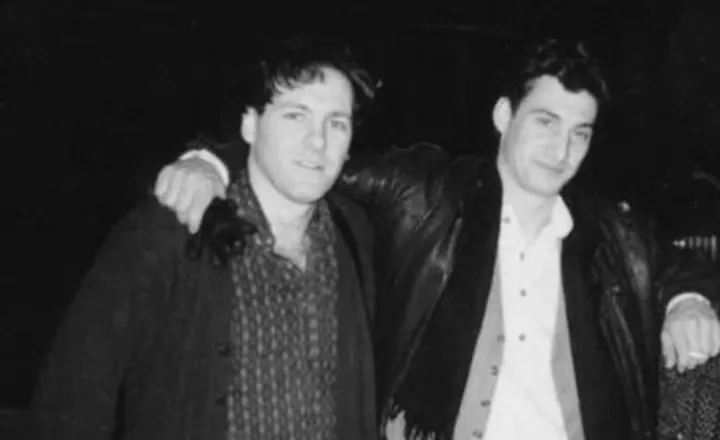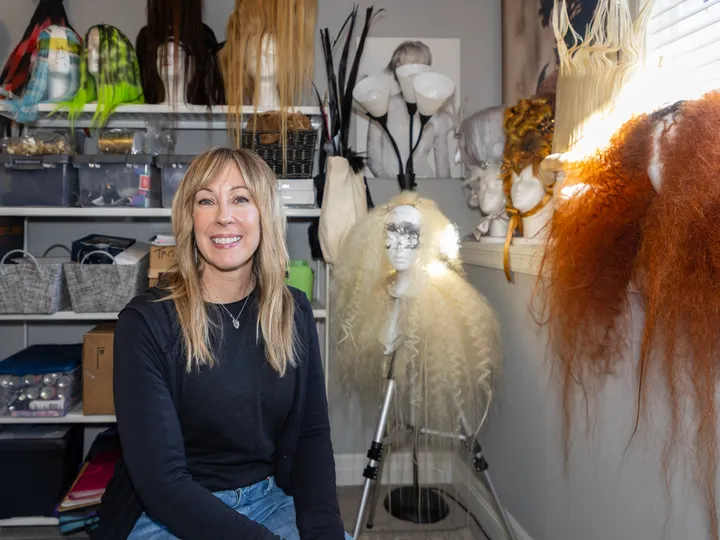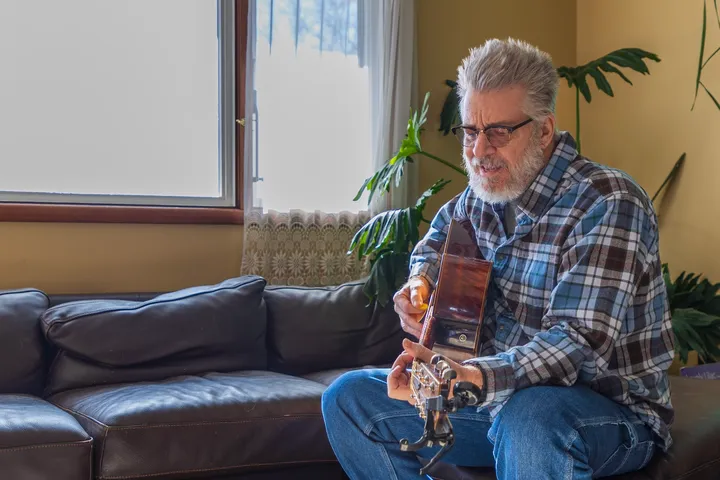C.J. Janovy on the necessity of activism: 'Not paying attention used to be a luxury'
"The LGBTQ community needs to engage politically," the journalist and author said in a recent interview. Her 2018 book “No Place Like Home: Lessons in Activism from LGBT Kansas” has been re-released with a new introduction.
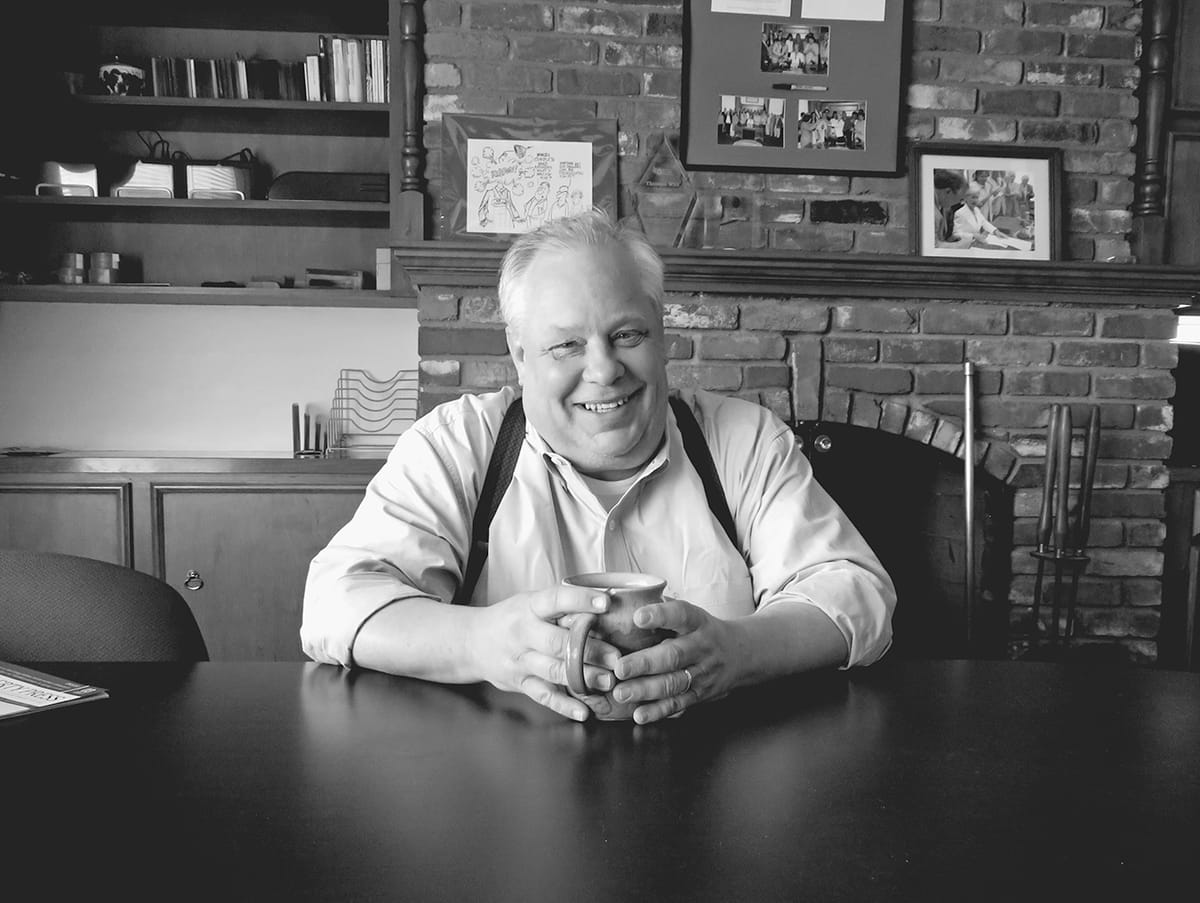
As anti-LGBT rhetoric intensifies, the queer community needs stories of political engagement — and triumph — more than ever.
C.J. Janovy’s 2018 book “No Place Like Home: Lessons in Activism from LGBT Kansas” is full of such accounts. A newly released version is arriving at just the right time.
The University Press of Kansas reached out to Janovy in 2023 about the re-release of her book, for which she’s written a new preface, after state and national backlash legislation.
I spoke with Janovy in mid-May. Through the course of our conversation, it became apparent that she hopes for more “neighbor-to-neighbor, loved-one-to-loved-one activism” of the kind she chronicles in her book.
“A lot of the people I spoke to (for 'No Place Like Home') just had to do something, even if it involved risk,” Janovy said.
Sandra Stenzel is one of the Kansans Janovy profiles in her book. Stenzel grew up outside of WaKeeney, Kansas, left western Kansas for work and then returned 16 years later to work as director of the Economic Development board in Trego County. Stenzel faced backlash at home when her comments at an LGBT caucus were picked up by the Associated Press, even though she participated in the caucus on her own time. Stenzel spoke up because “I was about the only person in western half of the state who was out. I felt it was important for me to testify.”
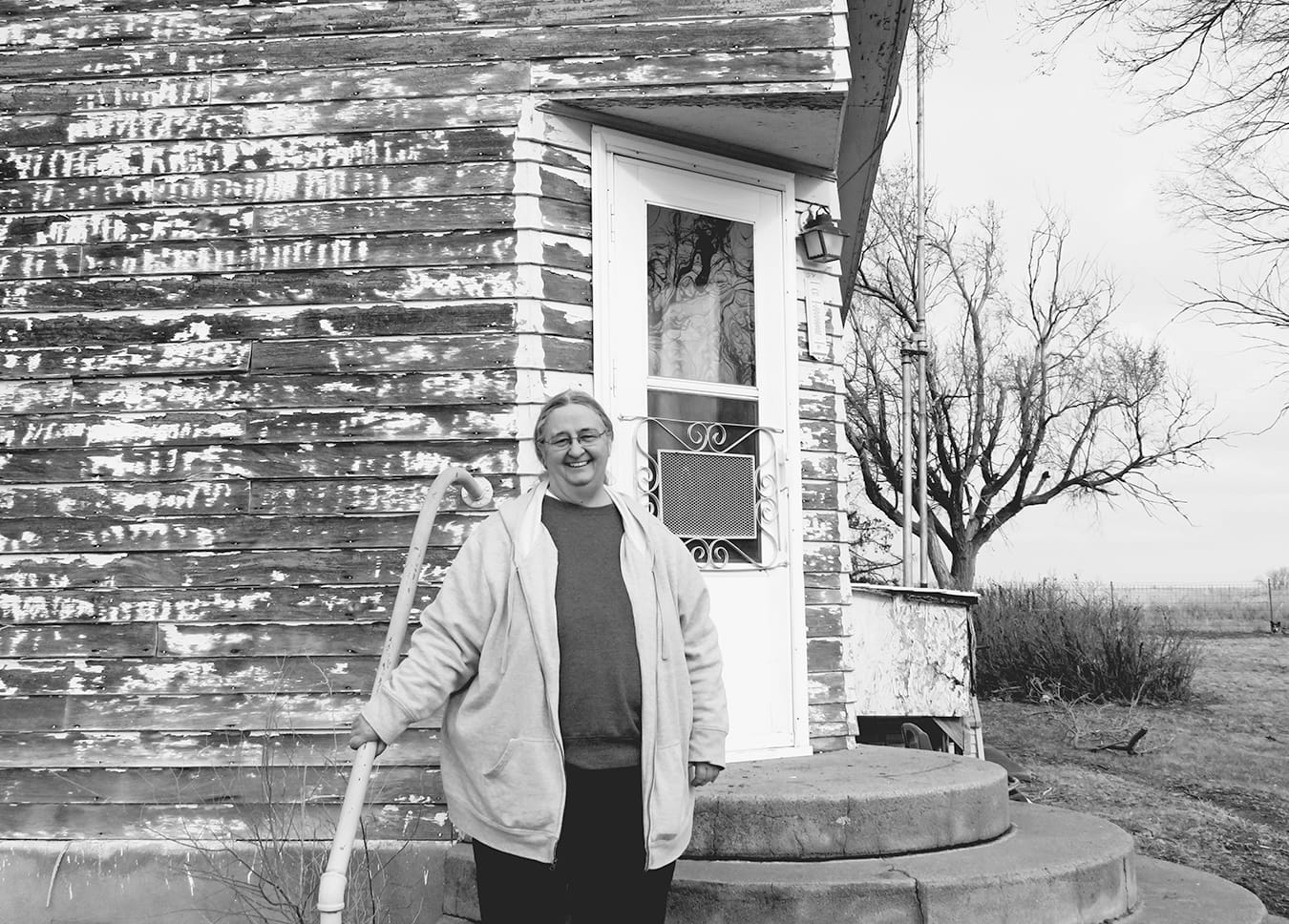
Janovy hopes more Kansans will follow Stenzel’s lead. “(I hope) people find a place in the community and speak up, even if it’s just going to a sidewalk and holding a sign. Find support, like real, human interaction, real human conversations and safe places, even in small communities.”
Our free email newsletter is like having a friend who always knows what's happening
Get the scoop on Wichita’s arts & culture scene: events, news, artist opportunities, and more. Free, weekly & worth your while.
No spam. Unsubscribe anytime.
“No Place Like Home” describes successful anti-discrimination ballot measures across the state of Kansas. But since then, a political shift to the right has threatened the rights of LGBT people. In 2025, the book is as relevant as it was seven years ago.
“Because of the timeline in book publishing, it’s impossible to keep up with changes and shifts in politics,” Janovy said “But even since (2018), the landscape has grown more hostile. And I think it will be up to future historians to make sense of it all because we are, politically, swinging back and forth more quickly nowadays.
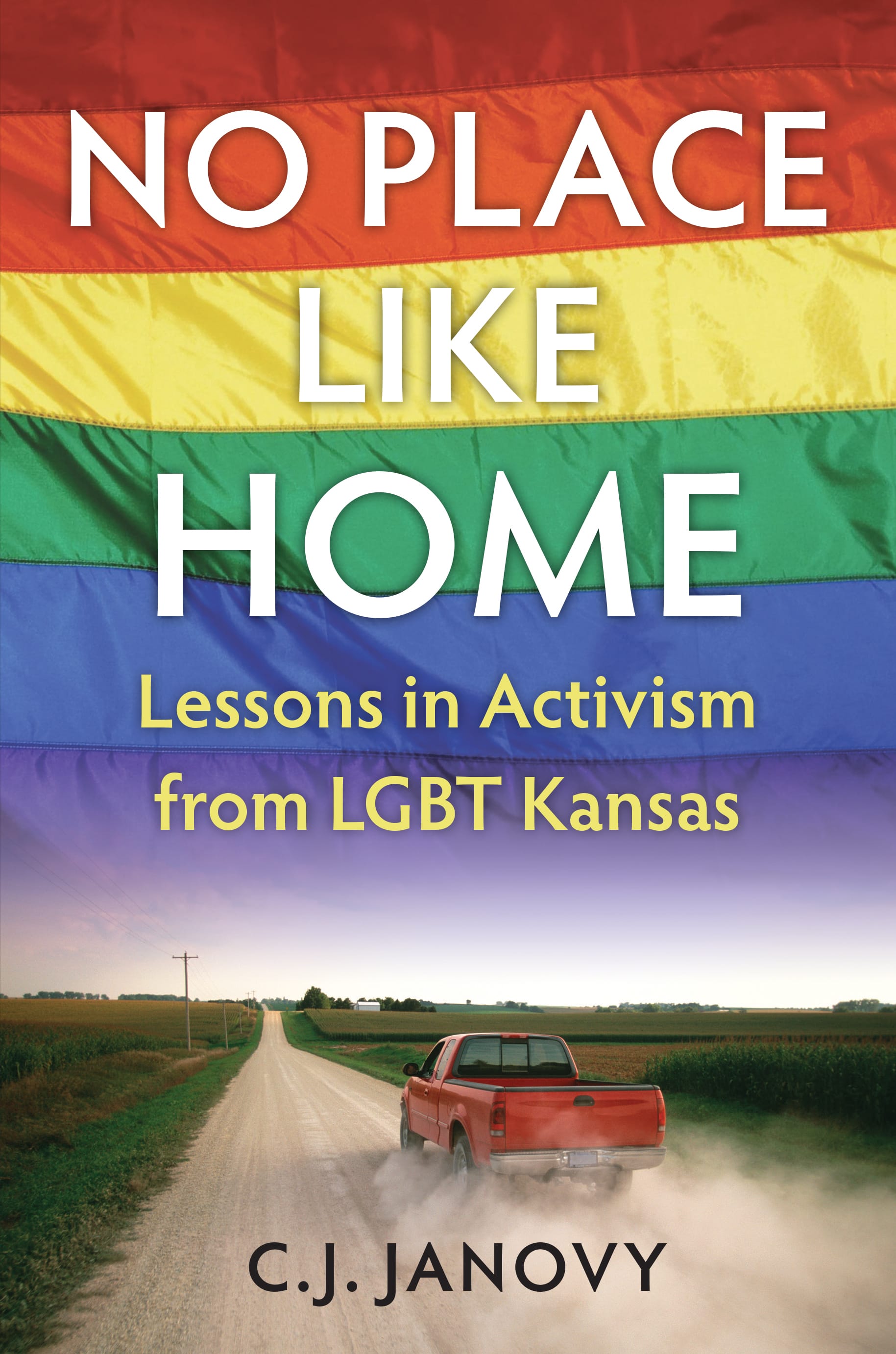
“We’re in a period of political backlash. The policy and cultural victories the LGBTQ community had with same-sex marriage sort of ended the (political) argument about the legitimacy of our relationships. And now politicians who want to use fear to fire up their base have found a new target, and that’s trans people. It’s always been a political tactic to target a minority.”
Janovy sheds light on those who have advocated for marginalized individuals and those often discriminated against. In one chapter — “Trans Kansas” — Janovy retells Stephanie Mott’s own coming out as a trans woman in the early 2000s, followed by her efforts to help transgender individuals navigate their transitions. Mott, who died of a heart attack in 2019, founded the Kansas Statewide Transgender Education Project (KSTEP) in 2010.. The following year, she traveled across Kansas to talk with family, friends and community members about trangender people. She hoped to be a face to those who might not otherwise ever meet a transgender person and she wanted to connect with other transgender Kansans. Throughout her life, Mott provided resources for others and gave courage to many.
“(I hope) people find a place in the community and speak up, even if it’s just going to a sidewalk and holding a sign. Find support, like real, human interaction, real human conversations and safe places, even in small communities.” — C.J. Janovy
“This period of time in the U.S. is not unique in world history,” Janovy said. “In fact, history has all sorts of examples of when the power of the state or instruments of government encourage violence against minority groups. And we all know how it turns out and how it escalates. But we need to remember not to be afraid of speaking up, even if — for a lot of people — it takes more courage than they’re used to.”
Janovy’s profiles double as lessons for how others can engage in activism.
“Not paying attention used to be a luxury,” she said. “But now it’s a death threat. We’re in an existential threat right now. The LGBTQ community needs to engage politically. Too many people don’t follow the news, don’t have access to news, or don’t want to be bothered by politics. It takes effort to pay attention, and even more effort to be involved.”
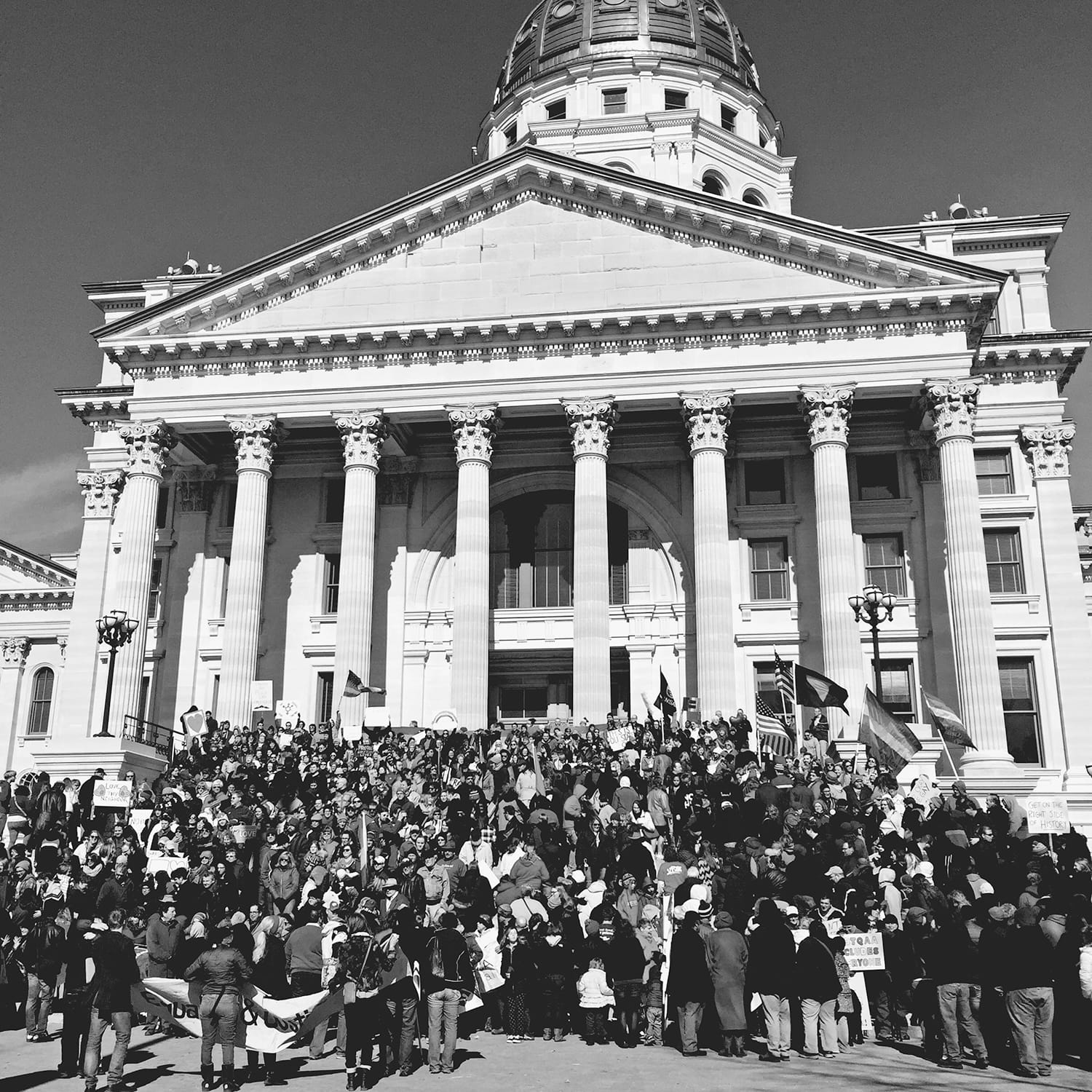
The story of Tom Witt, a man who didn’t originally consider himself a political activist is another lesson in political involvement. Witt started small as a letter-writer to his state representatives. Along with the folks he met with weekly for letter-writing sessions, he later founded Equality Kansas in 2005. The chapter-based, grassroots organization maintains a lobbying presence in the state legislature and now has over 2,000 members across the state, according to the group’s website. Witt’s story demonstrates how small steps can have big impacts.
The re-release of “No Place Like Home” is an ideal primer for people who are looking for Kansas-centered LGBTQ history as well as stories about the small, powerful ways they can become involved in community and state-based LGBTQ activism.
Janovy, who retired from journalism in 2025, has hopes for her future. “I’m planning to take full advantage of being an elder,” she said. “I’ll keep writing in some way, though I’m not sure where or what about.”
While the political pendulum has shifted and many endeavor to reverse the rights the LGBTQ community has gained in this century, Janovy remains positive.
“I hope that everyone keeps faith and stays strong,” she said.
“Take a lead from the young people. They don’t know all of the histories (of LGBTQ issues) because they’re a generation that never knew a time without acceptance, and they’re learning now because of the necessity.”
The Details
“No Place Like Home: Lessons in Activism from LGBT Kansas" by C. J. Janovy
308 pages. Originally published by University Press of Kansas in 2018, a version with a new introduction was released this month.
The re-release of the book comes on the heels of the 2023 documentary “No Place Like Home: The Struggle Against Hate in Kansas.” The Kevin Wilmott-directed film is based on Janovy’s book.
Learn more about C.J. Janovy on her website.
Shelly Walston is an educator, reader, writer, and collector of commemorative state plates. She's been teaching English at the high school level for more than two decades. When not grading essays, working on her novel, walking the dogs, or playing strategy games, you'll find Shelly sprawled on her couch, reading a book. More of her writing and book reviews can be found at shellywalstonwrites.com.
Support Kansas arts writing
The SHOUT is a Wichita-based independent newsroom focused on artists living and working in Kansas. We're partly supported by the generosity of our readers, and every dollar we receive goes directly into the pocket of a contributing writer, editor, or photographer. Click here to support our work with a tax-deductible donation.
❋ Derby man has the kind of voice that turns heads — and chairs
❋ Socializing while sober: how some Wichitans are cultivating alcohol-free communities
❋ As a small creative business closes, the owner mourns
❋ Painting through it: Autumn Noire on 20 years of making art
❋ How a guy from Wichita resurrected 'Dawn of the Dead'
❋ Bygone Friends University museum housed curious collections
The latest from the SHOUT
 The SHOUTZelda McAfee
The SHOUTZelda McAfee
 The SHOUTBob Peterson
The SHOUTBob Peterson
 The SHOUTLori Brack
The SHOUTLori Brack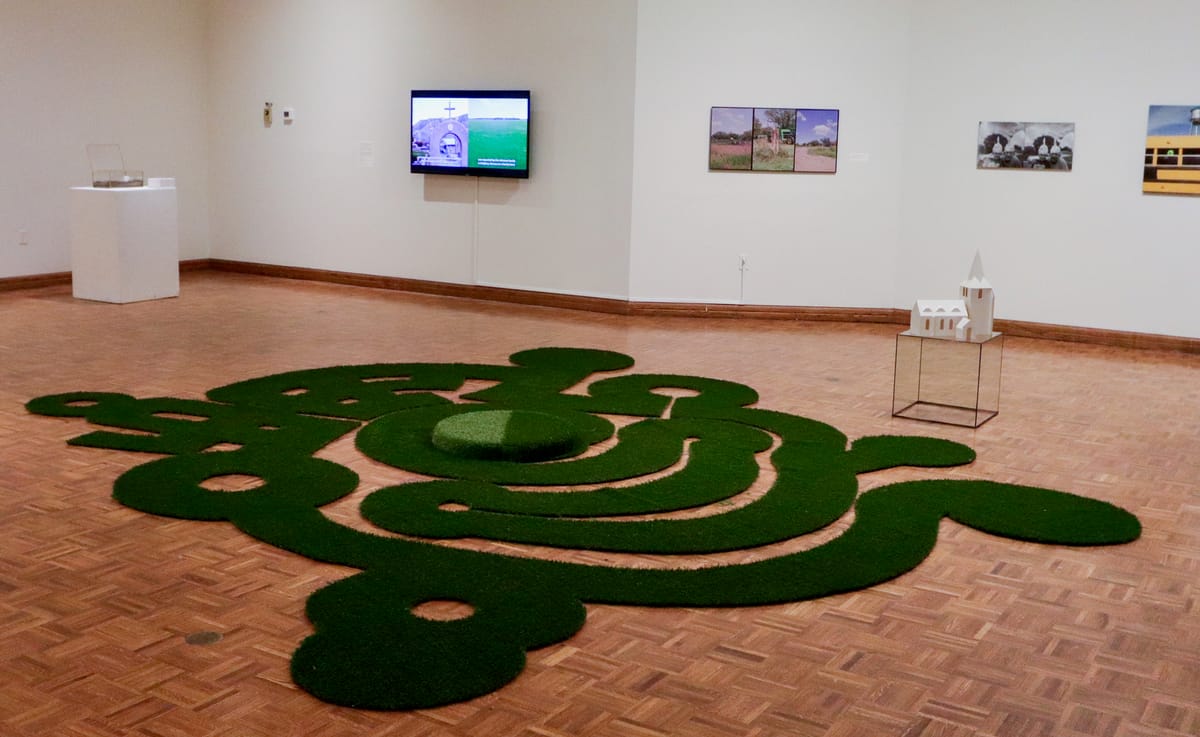
 The SHOUTKevin Kinder
The SHOUTKevin Kinder

